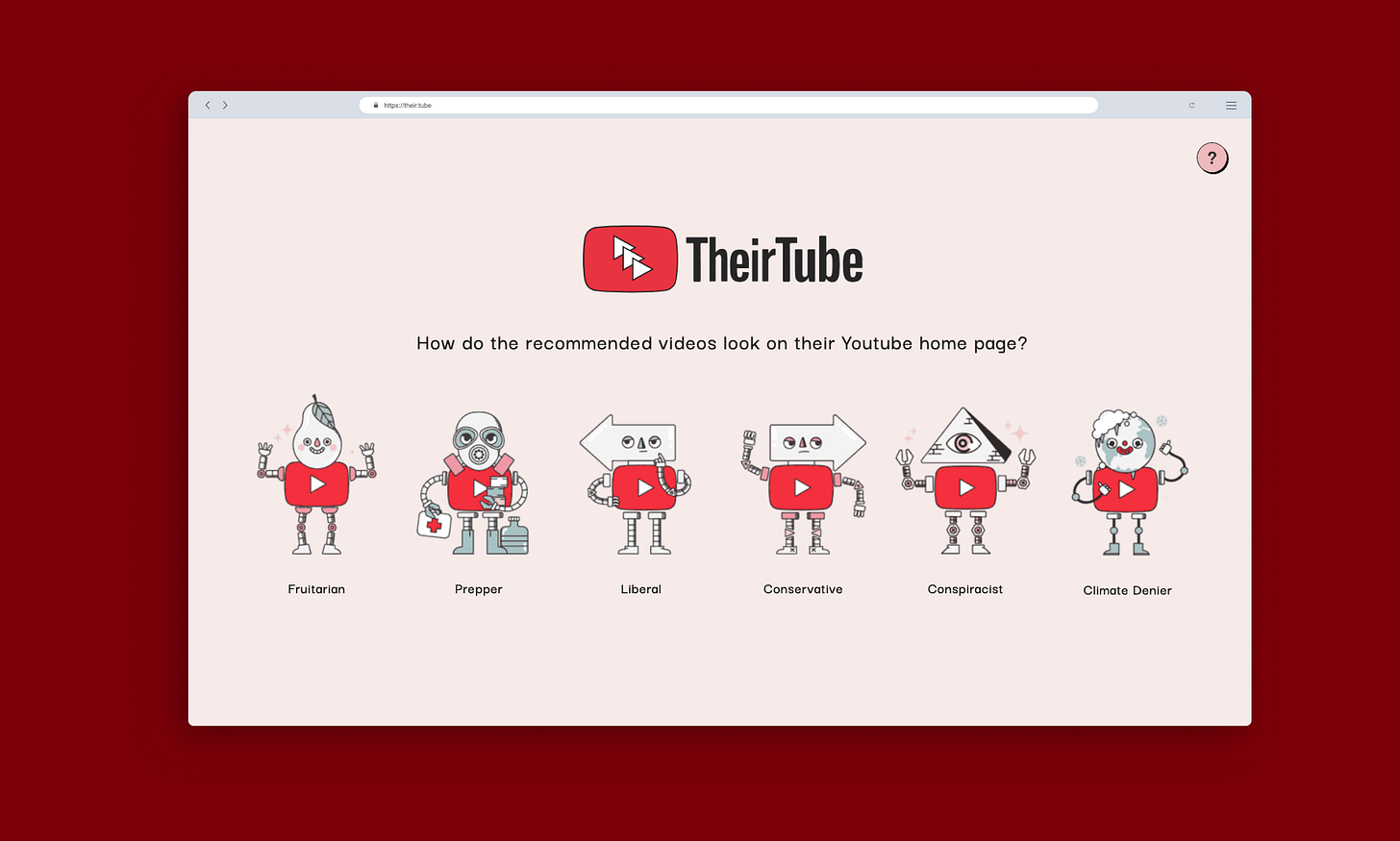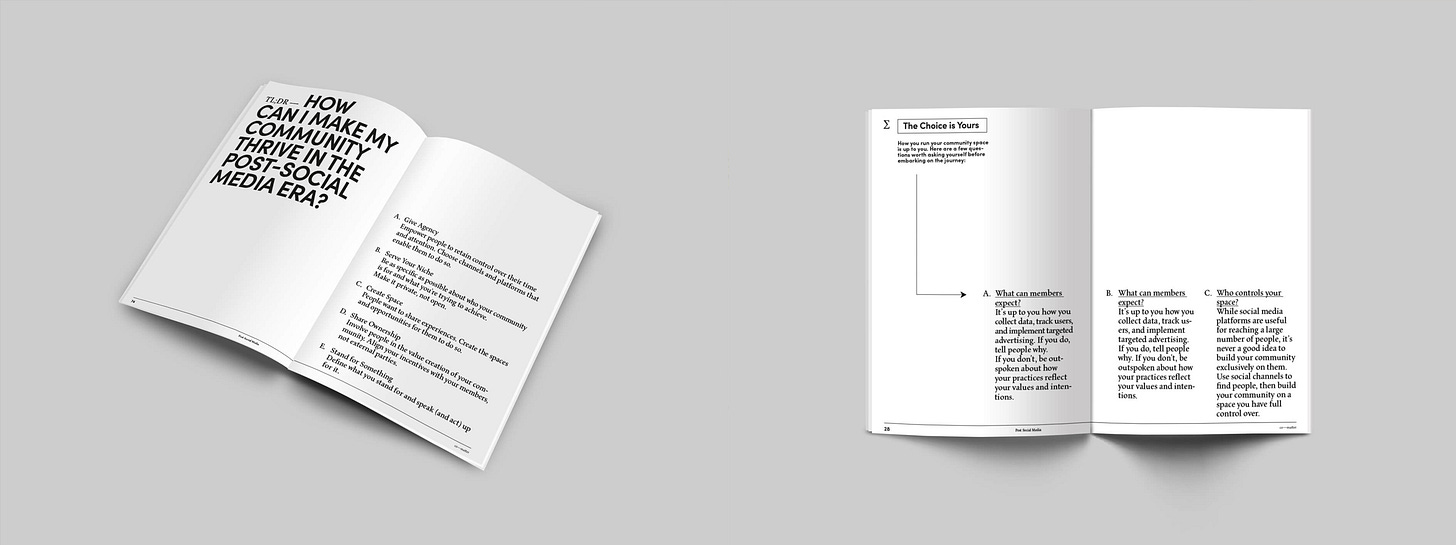🌐 Disconnected Gods
Struggling to reconcile conflicting perspectives, we've become more fragmented than ever.
I’m late (again), but I’m back. I don’t know if it’s the maker in me, but I always seem to bite off more than I can chew. These past few weeks, I’ve kept (too) busy by catching up on academics & work, impulsively joining a designathon and exploring serendipitous project ideas (which I hope to talk about soon)! How do you know when enough is enough? If you have an answer, I’d love to know; I probably need it.
Anyways, welcome to the 4th issue of Cathexis, a creative’s take on humanity’s relationship with technology. If you enjoy thought-provoking ramblings, unique collage art, and personally curated links from a curious teenage girl, why not subscribe?
Reflection
We have become our own gods.
This is all thanks to media technology. In the past, only powerful institutions could wield its power. For example, there’s religion. Then, the Internet democratized this power for all. According to Venkatesh Rao, "any ordinary human with sufficient imagination will have the kind of cultural superpowers that was once limited to the high priests and Pharaohs.” Look at the influencers and extremists of today; with their own believers and doctrines, how are they any different from the gods and their followers of the past? All cultivate a community.
Whether cult or fanbase, people join communities for a sense of purpose. But in exchange for this, they turn into hosts, who constantly give their time and energy to keeping it alive. It's why many religions ritualized rest; it helped keep their demands sustainable. But with the glorification of workaholism and the power of technology, these communities are becoming all-consuming. For instance, take the typical verified Discord server. Many channels. Constant pings. Frequent Zoom events. This is all too much for me to process as a member; I can only imagine being an admin, who has to work almost 24/7 to manage the server well: planning events, interfacing with members, and more. God-level work.
The intense nature of these communities makes them bubbles of reality — a silo with its own story and discourse. No wonder many religions discourage polytheism. This wasn’t a problem before when people’s networks were defined by their surroundings; now, thanks to the Internet, they're able to pick what they want to be a part of. But if it takes so much effort to partake in one, how can we choose from thousands of these available online? Struggling to reconcile conflicting perspectives, we've become more fragmented than ever.
Over the past few years (from high school to university life), I've been joining communities left and right: Tumblr fandoms, student tech organizations, Christian church groups, and niche interest Discords. I joined all these trying to find purpose. Yet, I still feel like I don't know myself at all. Am I only the sum of my parts? This is context collapse at work: a phenomenon coined by danah boyd in which multiple groups are flattened into one. It's what you experience when you're posting on Facebook, having to consider all your audiences: family, friends, colleagues, etc. Because of this, it's hard to be yourself — or choose which self to be.
How can we find ourselves beyond group identity and siloed social norms? We need to create space for ourselves. This can be done through alternate accounts, like finstas and private stories. These provide us a "back stage", where we don't have to perform for others. We'd now be able to explore our selfhood. Just as we've outgrown the gods of the old, we've outgrown the need to tie our sense of selves to one certain thing, whether it be a career, skillset, or community. When we're free to connect to ourselves, we can then truly connect with the world around us again.
We can reclaim what Web 2.0 was meant to be: an embodiment of Ubuntu — meaning "I am because we are", it's a belief in a universal bond of sharing that connects all humanity. Behind our profiles, we're all vulnerable people who crave love and care. If we have this in common, then what are we hiding from? If we could shape our realities, why can't we make one where we're not afraid to open ourselves to others?
Design leader & mindfulness coach Jay Vidyarthi describes this so well:
"When I see how fragile we are, it opens me up to bring my whole self wherever I go...What else is there to do but to care for each other?...Everything we do can be in light of the big picture. Our ‘why’ can be relentless service. We can open ourselves and connect with the people around us, the planet, and the animals, too. To embody this is to be ambitious...I’m talking about a deeper, more audacious ambition: striving to be someone who elevates everyone and everything they come in contact with. Easy to talk about it. Much harder to embody it in life."
If we're all gods, this is the type of person we should aspire to be. Of course, this is difficult; how long can you give a bit of yourself in every social interaction, if you don’t know what to expect in return? But this is what creators commit to doing. We pour our blood, sweat, and tears into our work, knowing that we won’t know what happens when we publish it. Despite the possibility of judgement, we continue for the sake of our purpose: connecting with others. Through my artworks and rambles, I want to open my heart to the world. Are you willing to try with me?
I would like to thank the following sources for inspiring this piece:
“You can handle the post-truth” & “Being your selves” by Aaron Z. Lewis
“all the world’s a stage” by Jasmine Sun
“Modern Gospels” by Mario Gabriele
“VOL. 64 / When gods are dead, we create new ones” by Tina He
Curation
🎨 Amazing Art
Place
Place was a social experiment done by Reddit for April Fool's Day in 2017. In the /r/place subredit, there was an online canvas that any user could edit by changing a single pixel; once this was placed, a timer prevented the user from placing anymore for a period of time. Over 72 hours, over 1 million users came together to edit the canvas, placing around 16 million pixels. Overall, Place is an amazing representation of human culture. You can read about all the efforts that transpired here. If you want to see the final piece, I recommend using this Place atlas.
TheirTube
TheirTube is a Youtube filter bubble simulator that provides a look into how videos are recommended on other people's YouTube. You can look through the perspective of six personas, ranging from conspiracists to climate deniers. It's interesting to see how simple recommendations can be so influential on one's worldview. Personally, it's hard for me to empathize with such controversial types, so this project really opened my eyes.
The Sketchbook Project
The Sketchbook Project is a crowd-sourced library of over 10,000 artists' sketchbooks from people around the globe, ranging from school children to professional illustrators. I love how they're open to anyone filling out a sketchbook; it empowers people to be creative, even if they don't think so. Going through such personalized works (wonders of an analog medium) was quite the experience as well.
🤯 Interesting Innovations
Your quirky second brain: Kinopio
Kinopio is a visual thinking tool that works like your brain does; instead of neatly structured forms and lists, it makes use of cards and connections. You can use this to brainstorm, plan, or basically figure things out by yourself or with others. As someone who has a messy thinking process (e.g. randomly scribbled/typed notes), I'm glad to find a tool that just gets me. Also, the UI is so cute!
Your new worlds: Gather, Topia, & Hubs
Tired of socializing on Zoom? Try Gather and Topia. These platforms integrate video chat into customizable virtual worlds. They feel more human due to their spatial nature; you can only hear conversations if you're near them — just like in-person. The worlds you're in can be edited to your liking, whether you're hosting a serious webinar or a simple game night. You may also like Hubs by Mozilla, a 3D-like version (no VR headset needed!).
Your future workspaces: MakeSpace & Here.fm
What if you just don't want to interact with others, but work alongside them as well? You'll be interested in Makespace. Instead of limiting your video feed to static frames, you can move your face wherever you want. You also get your own space where you can view any media: websites, videos, and more. This is customizable as well! You can make rooms for smaller groups, and your own themes. This software would fit so many use cases. Right now, it's still a work in progress; if you want to try something similar to this already, you may like Here, a platform for personal, shareable, and flexible video chat rooms.
📖 Rabbit Hole Reads
Post-Social Media
This report by co-matter, a global network & brand consultancy dedicated to community building, sheds so much light on how we're rethinking what it means to connect with others online. We're shifting towards a model that values agency, privacy, collectivism, community ownership, and responsibility; I can't wait for this to be the norm.
Community-curated Knowledge Networks
Investor & design thinker Sari Azout discusses an emerging business category: online communities at the intersection of content curation and knowledge management. The current information architectures we're interfacing with aren't human-friendly: content is ephemeral, disjointed, and divorced from context. Hopefully, this new category can address this. You can read the whole piece here. Sari also just launched Startupy, a community-powered database of startup knowledge. I'm super excited for this!
Run Your Own Social
Tired of today's social media platforms? Why not make your own? Run Your Own Social is a guide that will teach you how to run your own small social network site, from community building to the technical aspects. Yes, it's definitely more difficult than using an existing social network, but the control you'll have over your experience may be worth it. Get started here.
🧘 Wise Words
To understand what is real is actually deceptively simple. It’s the resilience that we see in people around us, the gut to leave behind what no longer works, and the courage to speak up, to change, to rebel.
— Tina He
Thank You!
Thank you for reading Cathexis today; I appreciate every single one of you.
Note: updates from now on may be irregular. To be honest, I feel like I’m going through a bad case of burnout; because of this, working on this newsletter became more of a pressure than an passion for me, which I don’t want. I’d rather have each issue made with care, instead of being shipped just for the sake of it. Perhaps I’ll learn over the break how to create for pleasure again. Let’s see. Take care, all <3
Enjoyed this post? Share it with a friend, buy me a coffee, or let me know your thoughts.














